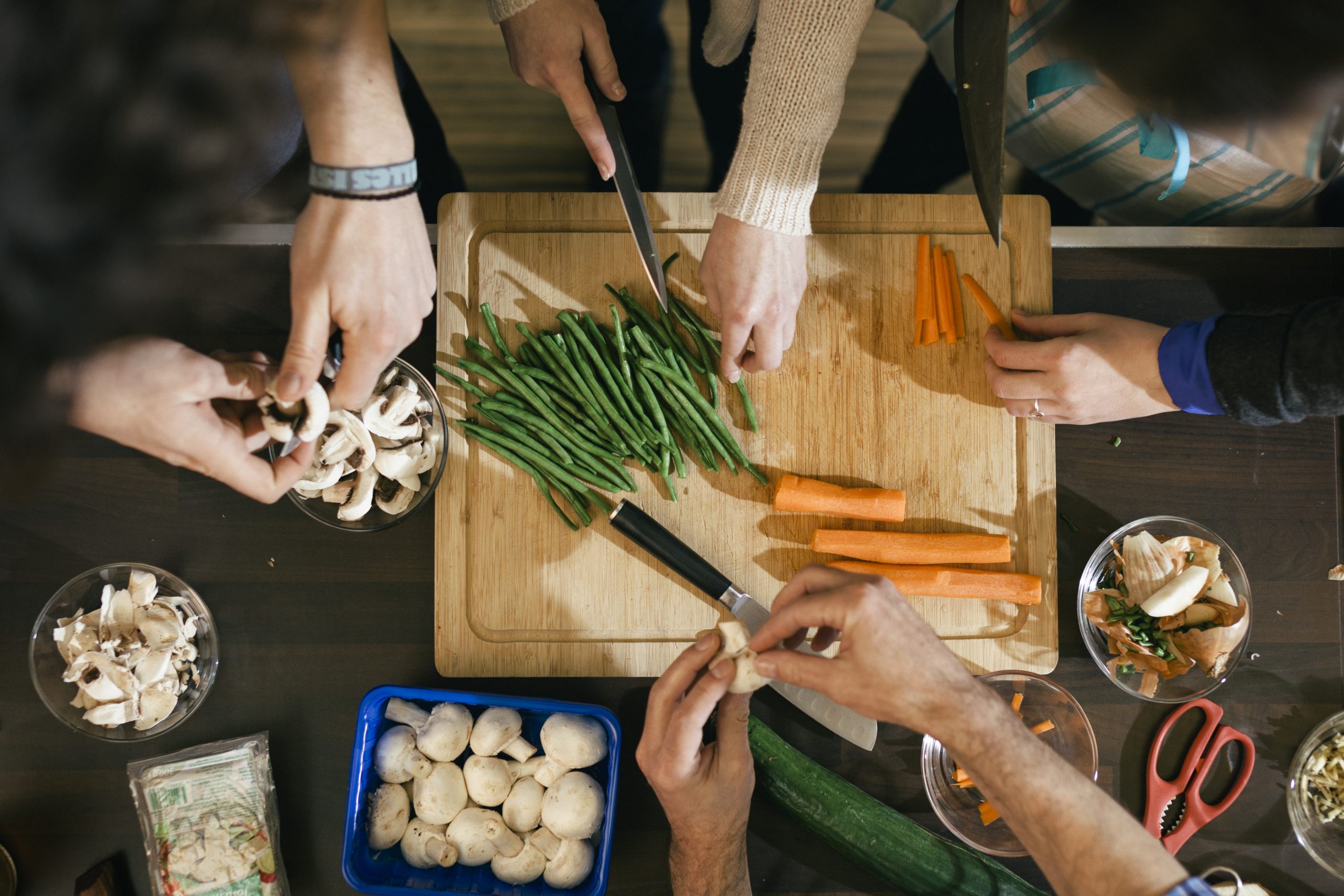Get ready to hear your vegetarian and vegan friends say, "I told you so."
A new study published by BMC Medicine supports the health benefits of limiting how much meat you consume, suggesting that low-meat and meat-free diets can reduce your risk of cancer.
Read MoreThe Role of Diet and Exercise in Cancer Risk
With the help of his colleagues, Watling studied data from more than 472,000 British adults over a period of 11 years. Participants were between 40 and 70 years old, and they recorded their consumption of meat and fish.
Previous studies have connected excessive consumption of red meat to a boosted risk of colon cancer. This research also found evidence that vegetarian diets significantly reduce men's risk of prostate cancer, and post-menopausal women's risk of breast cancer.
Scientists were careful to clarify that this does not necessarily mean that eating meat causes these different types of cancer. “There are different compounds that are found in red and processed meat, either through cooking or added during the processing, that may damage cells and therefore could increase the risk of colorectal cancer,” Watling said. “However, for other cancer types, outside of colorectal, there is no convincing evidence that suggests consuming meat is associated with the risk of other cancers."
Meat Eaters: Diet and Cancer Risk
SurvivorNet experts agree that diet and cancer risks are closely related.
How Can Diet Affect My Cancer Risk?
Overcooked red meat, processed foods like bacon, as well as fatty meats have all been associated with an increased cancer risk. Multiple studies have determined that there is a link.
However, removing these suspected triggers does not always stop cancer from developing and indulging in them does not necessarily mean a person will get cancer. There is a bit more to understanding cancer risk than that.
We are exposed to carcinogens, or substances that can cause cancer, throughout our daily lives. But many people will not go on to develop the disease, says Dr. Robert Wright, chair of the Department of Environmental Medicine and Public Health at Mount Sinai.
"We create carcinogens all the time in our foods when we cook them, and very few of us get cancer because our bodies can handle them," Dr. Wright explained. "But some people have susceptibilities to these environmental carcinogens, which might be genetic or might be caused by combinations of carcinogens."
It is important to understand that no one trigger is going to definitively cause cancer, Dr. Wright said, but it could be a combination of triggers in the environment.
"Cancer isn't caused by one event, typically, it's usually a series or combination of events," he added. "So, it may be that you ate a lot of charred food, it may be that you're also a smoker, it may be that you've inherited a genetic susceptibility to be a little bit more sensitive to those chemicals."
So, are there any foods that can actually decrease the chance of getting cancer? No matter what anyone tells you, as far as we know, there is no single food that doctors can point to, with absolute certainty, and say it decreases cancer risk. That does not mean that healthy eating habits are not important. A balanced diet is a priority both during and after cancer treatment.
When it comes to dietary advice that applies to everyone, Dr. Wright is pretty straightforward eat more vegetables and stay active.
"What we haven't figured out for cancer is, what is the combination of risk factors that end up leading to a particular person getting cancer," Dr. Wright said during a previous interview with SurvivorNet. "The goal (in the future) is to identify those people who are more susceptible to cancer and to give them counseling and foods that they can eat and other habits like exercise that can reduce their risk. Right now, we're not really good at predicting that."
While some cancers do develop from inherited genes, most do not, so researchers are working on ways to understand how lifestyle factors like diet, exercise, and chemical exposures put people at risk. With that in mind, Dr. Wright stressed that eating well and staying active are still important for all of us.
"In the end, prevention is actually kind of simple," he said. "It's what we always know. It's exercise and eat well. That means eating more vegetables and less meats, particularly red meats."
Some dietary basics to avoid a higher cancer risk include:
- If you can afford it, buy organic fruits and veggies
- When buying non-organic, make sure to thoroughly wash produce
- Avoid overcooking food
- Try to eat fewer red meats
Contributing: Sydney Schaefer
Learn more about SurvivorNet's rigorous medical review process.


